I realize that many of the writers in the KWA have found their personal strides. But I am a writer still exploring my creative voice. As both a writer of fiction and a poet, there are several books that I return to time and again to refuel and bring zest to my work. Hopefully a suggestion here will bring you some inspiration as well.
Each of these books is available for sale, but for ease I linked each book cover image to the Amazon listing. Please keep in mind that many of MY copies were borrowed from the public library, but I highly recommend supporting Wichita’s own Watermark Books.
Letters to a Young Poet
by Rainer Maria Rilke
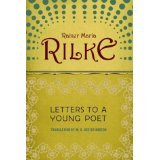 “Seek those [themes] which your own everyday life offers you; describe your sorrows and desires, passing thoughts and the belief in some sort of beauty—describe all these with loving, quiet, humble sincerity, and use, to express yourself, the things in your environment, the images from your dreams, and the objects of your memory.”
“Seek those [themes] which your own everyday life offers you; describe your sorrows and desires, passing thoughts and the belief in some sort of beauty—describe all these with loving, quiet, humble sincerity, and use, to express yourself, the things in your environment, the images from your dreams, and the objects of your memory.”
These letters are available in a variety of translations, the best of which is the M.D. Herter volume. The advice shared with a wider audience in 1932 remains timeless. A writer doesn’t have to be a poet to appreciate the sentiment that writing is difficult and that writers should find the courage from within to continue.
Writing Down the Bones
by Natalie Goldberg
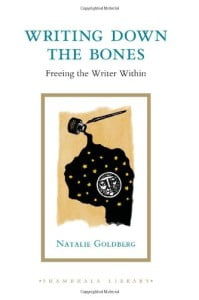 Goldberg is my favorite writer for practical writing advice. She combines her Zen practice with her devotion to daily writing, and the result is gracious encouragement for every writer. One of the early chapters, “First Thoughts,” describes the daily writing exercise, even down to choosing a pen that gets you excited about writing.. Goldberg believes you must write through the bad results to get to the good. And writing everyday is the ticket.
Goldberg is my favorite writer for practical writing advice. She combines her Zen practice with her devotion to daily writing, and the result is gracious encouragement for every writer. One of the early chapters, “First Thoughts,” describes the daily writing exercise, even down to choosing a pen that gets you excited about writing.. Goldberg believes you must write through the bad results to get to the good. And writing everyday is the ticket.
The Artist’s Way
by Julia Cameron
This book literally describes a course of action that aspiring artists and creative people can execute to unleash their own 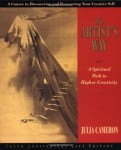 creativity. On a week-by-week plan, The Artist’s Way retrains the brain to look and see the world in new ways, which will begin to feed into the creative life. While written more for the ‘artist,’ each week’s efforts are beneficial for writers. For example, toward the end of week 2 [in the chapter “Recovering a Sense of Identity”], one exercise is to “List your five major activities this week. How much time did you give to each one? Which were what you wanted to do and which were should? How much of your time is spent helping others and ignoring your own desires?” Sometimes acknowledging what keeps me from working on a project motivates me more to manage my time differently.
creativity. On a week-by-week plan, The Artist’s Way retrains the brain to look and see the world in new ways, which will begin to feed into the creative life. While written more for the ‘artist,’ each week’s efforts are beneficial for writers. For example, toward the end of week 2 [in the chapter “Recovering a Sense of Identity”], one exercise is to “List your five major activities this week. How much time did you give to each one? Which were what you wanted to do and which were should? How much of your time is spent helping others and ignoring your own desires?” Sometimes acknowledging what keeps me from working on a project motivates me more to manage my time differently.
The Art of Fiction
by John Gardner
 If you write fiction, you must read this book. I had written stories for years before I realized that I was making some basic mistakes by violating the reader’s sense of psychic distance. I am embarrassed to say that I was also quite happily attached to clichés. Gardner essentially breaks down elements of a story, providing great samples and examples of what works AND what NOT to do. Ironically, there are popular genres where certain things Gardner determined were errors are actually acceptable forms—like in Romance, readers accept the easy slide between one point-of-view and another.
If you write fiction, you must read this book. I had written stories for years before I realized that I was making some basic mistakes by violating the reader’s sense of psychic distance. I am embarrassed to say that I was also quite happily attached to clichés. Gardner essentially breaks down elements of a story, providing great samples and examples of what works AND what NOT to do. Ironically, there are popular genres where certain things Gardner determined were errors are actually acceptable forms—like in Romance, readers accept the easy slide between one point-of-view and another.
Tell us what YOU read!
This list is not exhaustive. There are many other books available to inspire the writer within. The best resources are often other writers. What is your must-have book? Tell us about it in the comment section below!
________________________________________
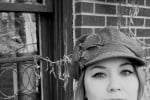 A Poet and a writer, April Pameticky tries to find balance between her professional life as a writer, teacher, wife, and mother. Her chapbook of poetry, Sand River and Other Places I’ve Been will soon be released by Finishing Line Press.
A Poet and a writer, April Pameticky tries to find balance between her professional life as a writer, teacher, wife, and mother. Her chapbook of poetry, Sand River and Other Places I’ve Been will soon be released by Finishing Line Press.
Catch up at AprilinWichita.
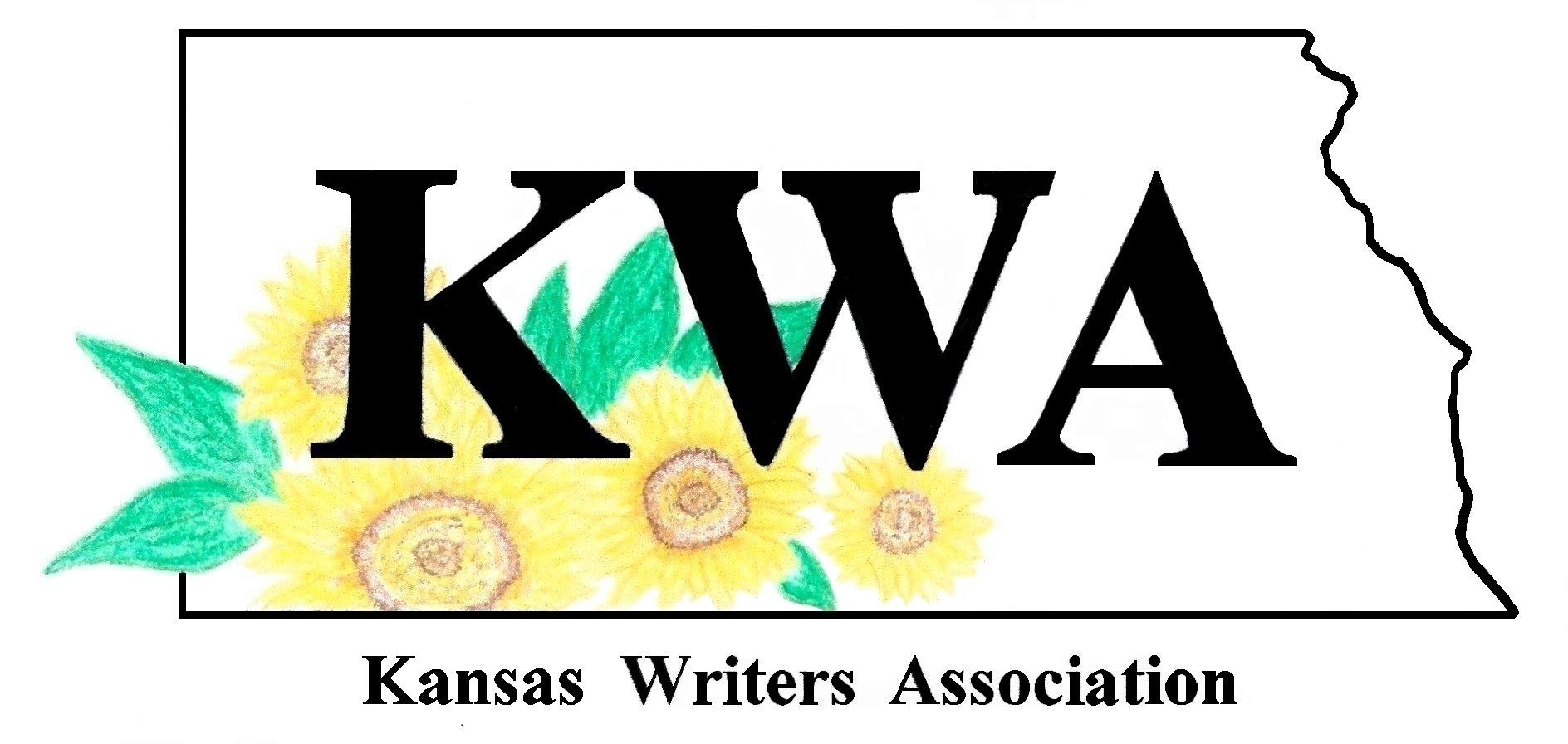
Stephen King’s “On Writing” is always at the top of my list of writing books to read. Elmore Leonard’s “10 Rules for Writing” is easily available on line (legally and for free) but I own the Kindle version just for easy reference (and the awesome illustrations). Orson Scott Card’s book on writing Science fiction is great for any writer of speculative fiction.